Discover 6 Conditions | The Science & Art of Great Teams
6 Conditions | The Science & Art of Great Teams

6 Conditions | The Science & Art of Great Teams
Author: Dr. Ruth Wageman and Dr. Krister Lowe
Subscribed: 16Played: 359Subscribe
Share
© Copyright Team Diagnostics, LLC. All rights reserved
Description
Explore the Science and Art of Great Teams through the 6 Conditions podcast with show hosts Dr. Ruth Wageman and Dr. Krister Lowe. The show explores how the 6 Team Conditions framework--a leading, empirically validated and highly predictive framework based on the seminal work of Drs. Richard Hackman, Ruth Wagman and other teams scholars at Harvard University--helps team leaders, team members and team coaches/facilitators foster team effectiveness. The show unpacks the structural design conditions as well as the emergent process dynamics that drive great teams. Dr. Ruth Wageman is a leading scholar-practitioner in the area of team effectiveness and is the author of "Senior Leadership Teams: What It Takes To Make Them Great" and the Team Diagnostic Survey. Dr. Krister Lowe is a thought leader in the emerging profession of team coaching and is the former host of the Team Coaching Zone Podcast which developed a listenership in more than 137 countries around the world. Tune in for new episodes of the 6 Conditions podcast every two weeks! For show notes and more information go to: https://6teamconditions.com
17 Episodes
Reverse
6 Conditions Podcast Episode #003: The 60-30-10 Rule: Designing, Launching, and Coaching Teams What are the highest leverage ways to help teams regardless of your role? In this episode Ruth & Krister discuss the high leverage places in the life of a team where intervention by a team leader, team coach and/or team members themselves can foster shifts towards great team effectiveness. Some theme discussed include: 1) The 60-30-10 Heuristic: The Levers of Designing, Launching and Coaching 2) When Leadership Matters Most in the Life of a Team 3) The Roles of Team Leaders, Team Members and Team Coaches 4) The Cycle and Discipline of Rinsing and Repeating 60-30-10 5) Launching New Teams & Relaunching Existing Teams For show notes and more information go to: https://6teamconditions.com/
6 Conditions Podcast Episode #002: The 6 Team Conditions Framework: Conditions vs. Causes Where would you start your thinking about fostering great teams and why? In this episode Ruth & Krister explore the underlying structural drivers of behavior in teams and why beginning with a team's structural design conditions is a powerful place to start. Teams are complex social systems and therefore simple cause-->effect models may be helpful but insufficient for getting teams on a positive trajectory. Rather creating an ecosystem of design conditions that gives rise to great performance is emphasized. The 6 Conditions (3 Essentials & 3 Enablers) Framework is discussed: 1) Real Team 2) Compelling Purpose 3) Right People 4) Sound Structure 5) Supportive Context 6) Team Coaching For show notes and more information go to: https://6teamconditions.com/
6 Conditions Podcast Episode #001: Podcast Launch In this Launch episode show hosts Drs. Ruth Wageman and Krister Lowe: Introduce the vision and rationale of the podcast Outline what listeners can expect from the show Provide a brief overview of the 6 Team Conditions Framework Share their backgrounds as team scholars and practitioners and as the show's hosts For show notes and more information go to https://6teamconditions.com/
6 CONDITIONS PODCAST #004: THE 3 ESSENTIAL CONDITIONS: BUILDING A SOLID FOUNDATION In this episode show hosts Drs. Ruth Wageman and Krister Lowe: Discuss the Leadership Attribution Error Introduce the 3 Essential Conditions of Team Effectiveness: Real Team, Compelling Purpose & Right People Illustrations of working with teams around the 3 Essential Conditions Resources for learning more For show notes and more information go to https://6teamconditions.com/6tc-newpodcasts/
6 CONDITIONS #005: THE 3 ENABLING CONDITIONS - ACCELERATING A TEAM'S DEVELOPMENT INTO A BRILLIANT COLLABORATION In this episode show hosts Drs. Ruth Wageman and Krister Lowe: Explore how to accelerate a team's development. Discuss developing healthy norms and work practices. Outline the 3 Enabling Conditions: Sound Structure, Supportive Context, Team Coaching Share illustrations of working with the 3 Enabling Conditions with real world teams. Identify learning resources for further study. For show notes and more information go to https://6teamconditions.com/
6 CONDITIONS #006: THE 3 CRITERIA OF TEAM EFFECTIVENESS In this episode show hosts Drs. Ruth Wageman and Krister Lowe: 1. Explore the key questions: 1) How would you know if a team is a great team? 2) What do you look at to decide if a team is effective? 2. Outline 3 Criteria of Team Effectiveness: 1) Task Performance; 2) Quality of Group Process; 3) Member Satisfaction 3. Discuss typical symptoms and signs that a team is less great and that you are being asked to help improve. 4. Identify ways to help teams develop the discipline of assessing their own effectiveness. 5. Explore how team leaders and team coaches can evaluate the impact of team coaching interventions. For show notes and more information go to https://6teamconditions.com/
6 CONDITIONS #007: THE 3 KEY TASK PROCESSES How would you know if a team is a great team? What do you look at in the short run to decide if a team is effective? In this episode Ruth & Krister: Share some reflections and observations on the Covid-19 pandemic Introduce the 3 Key Task Processes: Effort, Strategy, Knowledge/Skill Discuss how the 6 Conditions, 3 Key Task Processes and 3 Team Effectiveness Outcomes related as an integrated process model Share stories about intervening in teams around the 3 Key Task processes as well as practical tools and tips Share additional resources for furthering learning around the 3 Key Task Processes For show notes and more information go to: https://6teamconditions.com/6tc-newpodcasts/
6 CONDITIONS #008: THE TEAM DIAGNOSTIC SURVEY How can you use the TDS to support team effectiveness? When is a formal assessment worth using? How can you formally and objectively assess a teams' standing on the 6 conditions? In this episode Ruth and Krister: Discuss the pros and cons of using team assessments. Highlight some issues with the lack of solid science and research underlying many instruments on the market. Provide an overview of the Team Diagnostic Survey (TDS™): A highly validated, reliable and predictive (up to 80%) measure of team effectiveness based on the 6 Conditions Framework. The origins of the TDS™. When to use & not to use the TDS™ including stories of application with real world teams. For show notes and more information go to: https://6teamconditions.com/6tc-newpodcasts/
6 CONDITIONS #009: LAUNCHING & RELAUNCHING TEAMS How and when do you get the 6 Team Conditions in place? Why is launching/relaunching critically important for teams. In this episode Ruth & Krister: Discuss the importance of launching teams as part of the Designing --> Launching --> Coaching Sequence. Review the importance of "beginnings" in teams and some pitfalls of not launching effectively Explore launching teams with short vs. long performance cycles. Share stories of launching & relaunching real world teams. Identify useful launching techniques and practices. For show notes and more information go to: https://6teamconditions.com/6tc-newpodcasts/
6 CONDITIONS PODCAST EPISODE #010: ONGOING TEAM COACHING: PUNCTUATED EQUILIBRIUM AND STRUCTURAL VS. EMERGENT PROCESS COACHING Key Question: How do you support the development of teams over time? In this episode Ruth & Krister explore: Team Coaching as a Function of the Team Team Coaching as a Process of Learning and Change Punctuated Equilibrium: Time and Transitions in Teams Team Coaching: Beginnings, Middles, and Ends Motivational Coaching, Strategy Coaching, Educational/Learning-Focused Coaching Cadences & Rhythms Structural vs. Emergent Process Coaching Transfer of Team Coaching Capabilities Visual Management: Kanban Team Coaching Readiness For show notes and more information go to: https://6teamconditions.com/6tc-newpodcasts/
6 CONDITIONS #011: LEADERSHIP & AUTHORITY STRUCTURES IN TEAMS: WHERE DOES GREAT TEAM LEADERSHIP COME FROM? Key Questions: Where does great team leadership come from? What kinds of things should team leaders do and what things are better for the team to do? In this episode Ruth & Krister explore: Where does great team leadership come from? 1. Leadership as a "function" of a team 2. Team leaders as coaches 3. Four Critical Leadership Functions in Teams: 1) Executing the team task; 2) Monitoring and managing work processes; 3) Designing the team and member roles; 4) Setting overall direction 4. Authority Matrix - 4 Authority Structures: 1) Manager-Led; 2) Self-Managing; 3) Self-Designing; 4) Self-Governing 5. Distributing authority in teams 6. Surfacing authority dynamics in teams 7. When leadership most matters in teams: putting in place the 6 Conditions 8. Team leadership norms 9. Supplemental measures around leadership and authority structures in Team Diagnostic Survey reports 10. Supporting and developing team leaders For show notes and more information go to: https://6teamconditions.com/6tc-newpodcasts/
6 Conditions Podcast | Episode #012 | Dr. David Tate: Applying the 6 Conditions and Team Diagnostic Survey in Private Equity This episode kicks off a series of episodes that will feature the perspectives of certified practitioners who have applied the 6 Team Conditions framework and Team Diagnostic Survey with real world teams. Dr. David Tate joins Ruth Wageman and Krister Lowe for an examination of an applied case involving 13 top teams in the private equity sector. Dr. Tate is an Assistant Clinical Professor at the Yale University School of Medicine as well as a lecturer in the Yale University School of Management. He is also the Founder and a Principal at the Tate Consulting Group. David and his team have deep experience in the areas of Executive Coaching & Leadership Development; Family Business Consulting; Organizational Development and Strategic Planning. You can learn more about David at: https://www.linkedin.com/in/david-tate-780683/ and www.Tate-Consulting.com Some themes covered in the episode include: 1) David's journey in the area of team development including his foray into the 6 Team Conditions and Team Diagnostic Survey; 2) Forming a small team of team coaches to assess the team effectiveness of 13 teams in a private equity firm's investment portfolio; 3) The business case for the initiative; 4) Challenges faced in the overall engagement as well as within the intervention team; 5) Generating buy-in among the CEO's and top teams in the portfolio for the engagement; 6) The arc and phases of the engagement; 7) Analyzing patterns across the 13 teams using the Team Diagnostic Survey; 8) Special challenges of top teams in private equity backed firms; 9) Key lessons learned and insights for fostering team effectiveness in private equity settings. 10) David's forthcoming book "Conscious Accountability." Watch this and other episodes of the 6 Conditions Podcast at https://6teamconditions.com/6tc-newpodcasts/ as well as on iTunes, Spotify, TuneIn, Stitcher Radio, Google Play Music, YouTube and other podcast platforms.
6 CONDITIONS PODCAST #013: TIJANA MCKENZIE & SATHI BANERJEE, ROYAL DUTCH SHELL: AN ENTERPRISE PERSPECTIVE ON HOW TEAM EFFECTIVENESS DRIVES BUSINESS OUTCOMES This episode is the 2nd in a 6-part series focusing on practitioner perspectives on applying the 6 Conditions Framework and Team Diagnostic Survey in organizations. In this episode Tijana McKenzie (Leadership and Organisational Development Consultant, Executive Coach, Diversity & Inclusion Champion) & Sathi Banerjee (Leadership Assessment Lead) from Royal Dutch Shell join Ruth and Krister to discuss how a large energy company is approaching team effectiveness including the role of the 6 Team Conditions framework and Team Diagnostic Survey. Research linking Team Diagnostic Survey data and business outcomes such as employee engagement, operational excellence, safety, people development, learning orientation, and psychological safety are explored. Some themes covered in the episode include: Covid19 Fatigue, Wellness, Prioritization The conditions that unleash team talent Demand for and drivers of team effectiveness at Shell Linking 6 Conditions and Team Diagnostic Survey data to business outcomes Building the data analytics findings into the team effectiveness offerings The struggles and journey towards team effectiveness The journey of team development practitioners Shout out to Jorrit Van Der Togt, Executive Vice President Shell Downstream HR -------------------------------------------------------- Disclaimer: Definitions & Cautionary Note: The companies in which Royal Dutch Shell plc directly and indirectly owns investments are separate legal entities. In this 6 Conditions Podcast "Shell", "Shell Group" and "Royal Dutch Shell" are sometimes used for convenience where references are made to Royal Dutch Shell plc and its subsidiaries in general. Likewise, the words "we", "us" and "our" are also used to refer to Royal Dutch Shell plc and its subsidiaries in general or to those who work for them. These terms are also used where no useful purpose is served by identifying the particular entity or entities. ''Subsidiaries'', "Shell subsidiaries" and "Shell companies" as used in this 6 Conditions Podcast refer to entities over which Royal Dutch Shell plc either directly or indirectly has control. Entities and unincorporated arrangements over which Shell has joint control are generally referred to as "joint ventures" and "joint operations", respectively. Entities over which Shell has significant influence but neither control nor joint control are referred to as "associates". The term "Shell interest" is used for convenience to indicate the direct and/or indirect ownership interest held by Shell in an entity or unincorporated joint arrangement, after exclusion of all third-party interest. This 6 Conditions Podcast contains forward-looking statements (within the meaning of the U.S. Private Securities Litigation Reform Act of 1995) concerning the financial condition, results of operations and businesses of Royal Dutch Shell. All statements other than statements of historical fact are, or may be deemed to be, forward-looking statements. Forward-looking statements are statements of future expectations that are based on management's current expectations and assumptions and involve known and unknown risks and uncertainties that could cause actual results, performance or events to differ materially from those expressed or implied in these statements. Forward-looking statements include, among other things, statements concerning the potential exposure of Royal Dutch Shell to market risks and statements expressing management's expectations, beliefs, estimates, forecasts, projections and assumptions. These forward-looking statements are identified by their use of terms and phrases such as "aim", "ambition", ''anticipate'', ''believe'', ''could'', ''estimate'', ''expect'', ''goals'', ''intend'', ''may'', ''objectives'', ''outlook'', ''plan'', ''probably'', ''project'', ''risks'', "schedule", ''seek'', ''should'', ''target'', ''will'' and similar terms and phrases. There are a number of factors that could affect the future operations of Royal Dutch Shell and could cause those results to differ materially from those expressed in the forward-looking statements included in this 6 Conditions Podcast, including (without limitation): (a) price fluctuations in crude oil and natural gas; (b) changes in demand for Shell's products; (c) currency fluctuations; (d) drilling and production results; (e) reserves estimates; (f) loss of market share and industry competition; (g) environmental and physical risks; (h) risks associated with the identification of suitable potential acquisition properties and targets, and successful negotiation and completion of such transactions; (i) the risk of doing business in developing countries and countries subject to international sanctions; (j) legislative, fiscal and regulatory developments including regulatory measures addressing climate change; (k) economic and financial market conditions in various countries and regions; (l) political risks, including the risks of expropriation and renegotiation of the terms of contracts with governmental entities, delays or advancements in the approval of projects and delays in the reimbursement for shared costs; (m) risks associated with the impact of pandemics, such as the COVID-19 (coronavirus) outbreak; and (n) changes in trading conditions. No assurance is provided that future dividend payments will match or exceed previous dividend payments. All forward-looking statements contained in this 6 Conditions Podcast are expressly qualified in their entirety by the cautionary statements contained or referred to in this section. Readers should not place undue reliance on forward-looking statements. Additional risk factors that may affect future results are contained in Royal Dutch Shell's Form 20-F for the year ended December 31, 2019 (available at www.shell.com/investor and www.sec.gov). These risk factors also expressly qualify all forward-looking statements contained in this 6 Conditions Podcast and should be considered by the reader. Each forward-looking statement speaks only as of the date of this 6 Conditions Podcast, 1 September 2020. Neither Royal Dutch Shell plc nor any of its subsidiaries undertake any obligation to publicly update or revise any forward-looking statement as a result of new information, future events or other information. In light of these risks, results could differ materially from those stated, implied or inferred from the forward-looking statements contained in this 6 Conditions Podcast. We may have used certain terms, such as resources, in this 6 Conditions Podcast that the United States Securities and Exchange Commission (SEC) strictly prohibits us from including in our filings with the SEC. Investors are urged to consider closely the disclosure in our Form 20-F, File No 1-32575, available on the SEC website www.sec.gov. -------------------------------------------------------- For show notes and to watch this and other episodes of the 6 Conditions Podcast at https://6teamconditions.com/6tc-newpodcasts/. Listen on your favorite podcast platform: Apple Podcasts, Spotify, TuneIn, Stitcher Radio, Google Podcasts, YouTube and more.
This episode is the next installment in a series featuring the perspectives of certified practitioners as well as enterprise clients who have applied the 6 Team Conditions framework and Team Diagnostic Survey with real world teams. Carissa Bub joins Ruth Wageman and Krister Lowe for an examination of an applied case involving leadership and culture change through a team of teams approach. Carissa Bub is an Executive Team Coach and also a Leadership and Communications expert. Her coaching practice is built on 20 years guiding leaders from the boardroom to the factory floor to transform how they lead, communicate and catalyse meaningful change. Her expertise is coaching Chief Executives and senior leadership teams to boldly engage all stakeholders; and developing resilient teams. Learn more about Carissa at: https://www.linkedin.com/in/carissabub/ Some themes covered in the episode include: The social-organizational context for teams From conflict management → organizational transformation → culture change in team coaching Focusing on relationship dynamics and design and structure in teams Case Example: Leadership & Culture Change From learning teams → project teams Creating an enabling environment for team of teams Next generation leadership development Team leadership development Adult development in teams Mutually reinforcing nature of task performance, group process, and member satisfaction Watch this and other episodes of the 6 Conditions Podcast at https://6teamconditions.com/6tc-newpodcasts/ as well as on iTunes, Spotify, TuneIn, Stitcher Radio, Google Play Music, YouTube and other podcast platforms.
6 CONDITIONS #015: ORGANIZATIONAL AGILITY & THE 6 CONDITIONS | SPECIAL GUESTS GABE ABELLA & ADAM HSU This episode is the next installment in a series featuring the perspectives of certified practitioners as well as enterprise clients who have applied the 6 Team Conditions framework and Team Diagnostic Survey with real world teams. Gabe Abella & Adam Hsu join Ruth Wageman and Krister Lowe for an exploration of using the 6 Conditions Framework and Team Diagnostic Survey to foster organizational agility. Gabe Abella is an Organizational coach at JP Morgan Chase focused on enabling organizational agility at enterprise scale by leading, coaching, and teaching. Learn more about Gabe: https://www.linkedin.com/in/gabeabella/. Adam Hsu is an Accredited Kanban Consultant, Trainer, and Speaker as well as an Organizational Coach in Global Technology at JPMorgan Chase focused on enabling organizational and business agility at every level of the organization. Learn more about Adam: https://www.linkedin.com/in/adamhsuakt/. Some themes covered in the episode include: Overcoming systemic effects of enterprises to foster organizational agility Working with nested systems of teams, teams of teams The journey from individual contributor to organizational agility coach The acceptance of uncertainty Inspecting, adapting, experimenting Practical examples illustrating how to use the 6 Conditions to foster organizational agility How changing structure can quickly change deep seated behaviors Using the Team Diagnostic Survey during leader transitions and team relaunches Why you can't coach a badly designed team For show notes and more information go to: https://6teamconditions.com/6tc-newpodcasts/
6 Conditions Podcast Episode 016: Team Leadership & Team Effectiveness in a Covid19 Respiration Clinic: Special Guest Janice John, Cambridge Health Alliance This episode continues a series focusing on practitioner, organizational and team leader perspectives on applying the 6 Team Conditions framework and Team Diagnostic Survey in real world settings. In this episode show hosts Ruth Wageman and Krister Lowe interview Janice John--MHCDS, MHS, PA-C, Medical Director at Cambridge Health Alliance--on her experiences standing up a Covid19 Respiration Unit. In her current role as Medical Director Janice built and led a team of 15 clinicians to create an outpatient clinic to care for patients at high risk for and from COVID-19 in Middlesex County MA, and become a model of excellence and learning for outpatient COVID-19 care. Janice and her team created clinical guidelines used by many health systems, including the development of the UpToDate chapter for outpatient adult care for COVID-19. The team's core focus has been to increase access to communities impacted by systemic racism, build trust and decrease stigma. Learn more about Janice: https://www.linkedin.com/in/janice-john-mhcds-mhs-pa-c-8b854663/ Some themes explored in the episode include: Rapid team formation Starting small, prototyping and scaling Purpose and urgency in teams Pausing and relaunching teams to foster sustainability Team coaching in weekly :45 minute sessions Technical expertise and team leadership Importance of spaces for reflection in action Team cadences and rhythms Complexity and emergent learning and performance Challenges and insights as a team leader Complex adaptive systems Grappling with structural racism
EPISODE #017: COLLECTIVE INTELLIGENCE IN TEAMS | SPECIAL GUESTS: DR. ANITA WILLIAMS WOOLEY AND PRANAV GUPTA This episode is the first in a series inviting researchers onto the podcast to share their leading edge work that is advancing our understanding of teams and team effectiveness. In this episode show hosts Ruth Wageman and Krister Lowe interview Dr. Anita Williams Woolley and Pranav Gupta on the subject of collective intelligence in collaboration and teams. Anita Williams Wooley is an Associate Professor at Carnegie Mellon Tepper School of Business an organizational psychologist who studies collective intelligence and collaboration in groups and teams. Pranav Gupta is a PhD Student in Organizational Behavior at Carnegie Mellon whose research focuses on understanding the emergence of intelligent behavior in digitally-augmented teams. Some themes explored in the episode include: Anita's work with Richard Hackman on action-based research in the intelligence community following 9-11 that led to her interest in collective intelligence Pranav's background building robots and software and the challenge of getting people to collaborate effectively and how this led to his interest in the "design of social systems." Defining "collective intelligence" Team composition and collective intelligence: the role of "social perceptiveness" and "collaboration behaviors" Theory of mind in teams Diversity (gender, ethnic, cognitive, age) in teams and the role of coaching interventions Change in environments and adaptiveness in teams: trade offs in the functions of reasoning, attention and memory The role of team coaching and key task processes in fostering collective intelligence The role of technology and AI to augment team processes Is AI acting as a coach, manager, or team member in teams? The relative influence of composition and key task processes in collective intelligence Overcoming the lack of ideal composition in teams Learn more about Anita and Pranav: https://www.linkedin.com/in/anita-williams-woolley-1443a84/ anitawoolley.com https://www.linkedin.com/in/guptapranav1/ and pranavgupta.org For More Information on the 6 Team Conditions: https://6teamconditions.com/




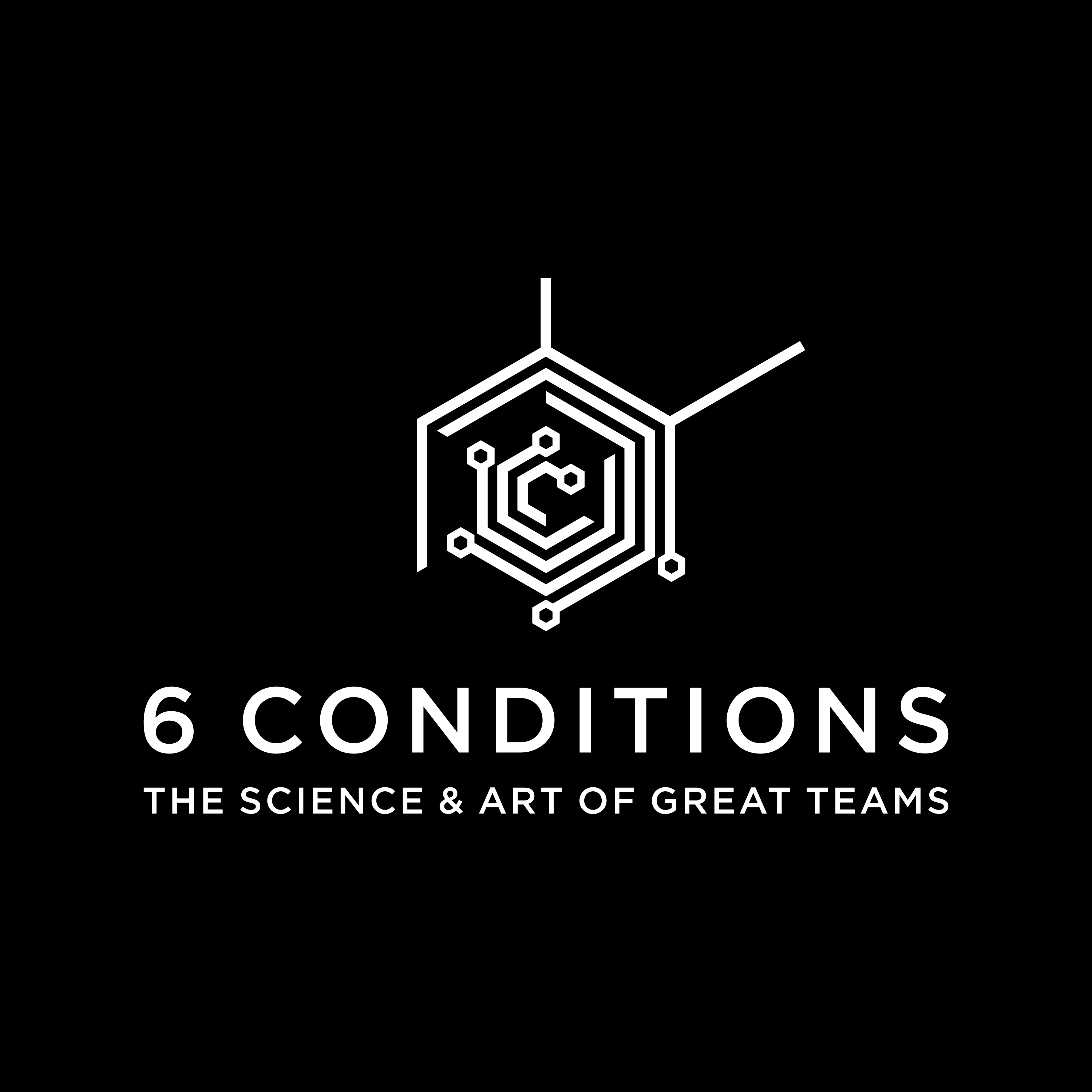
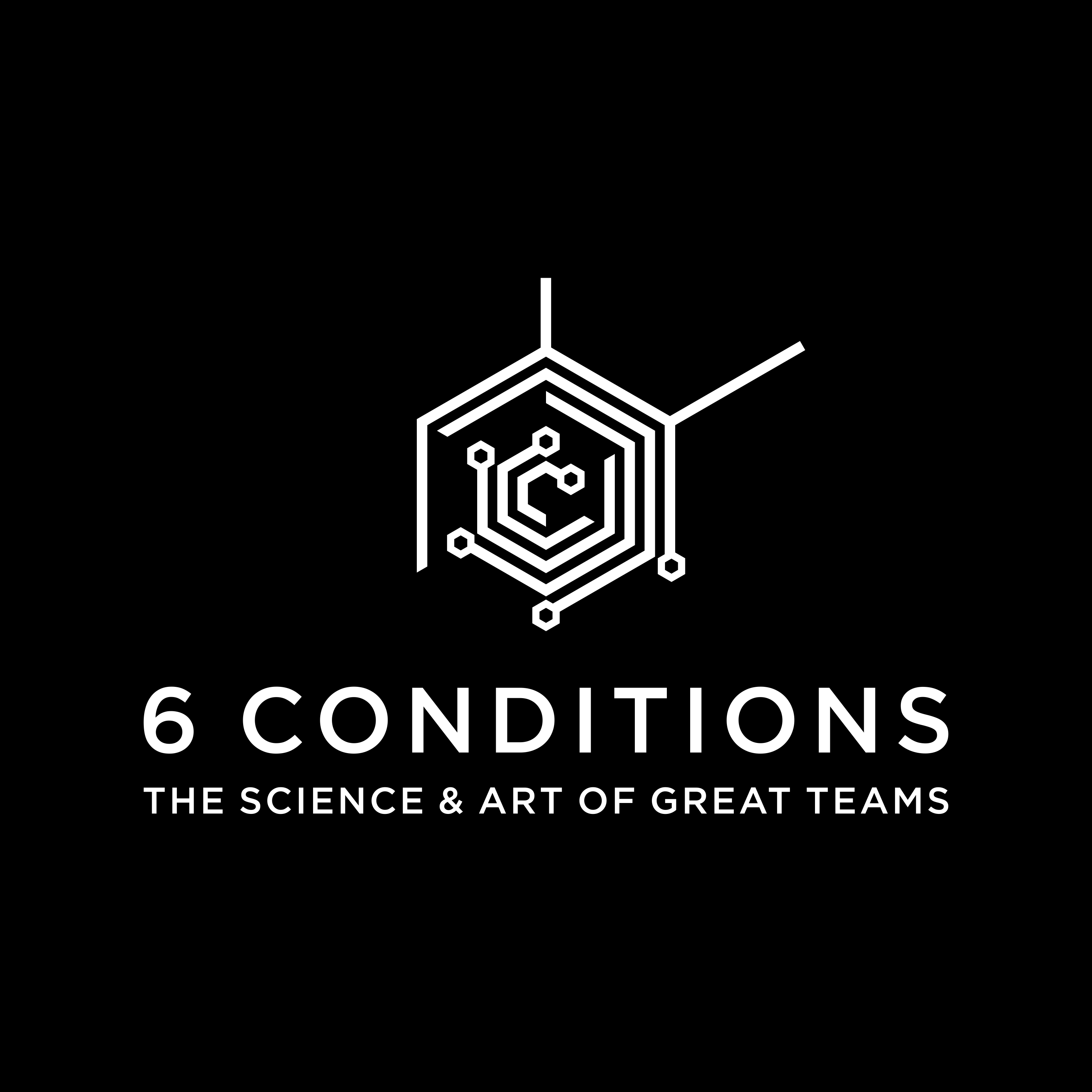


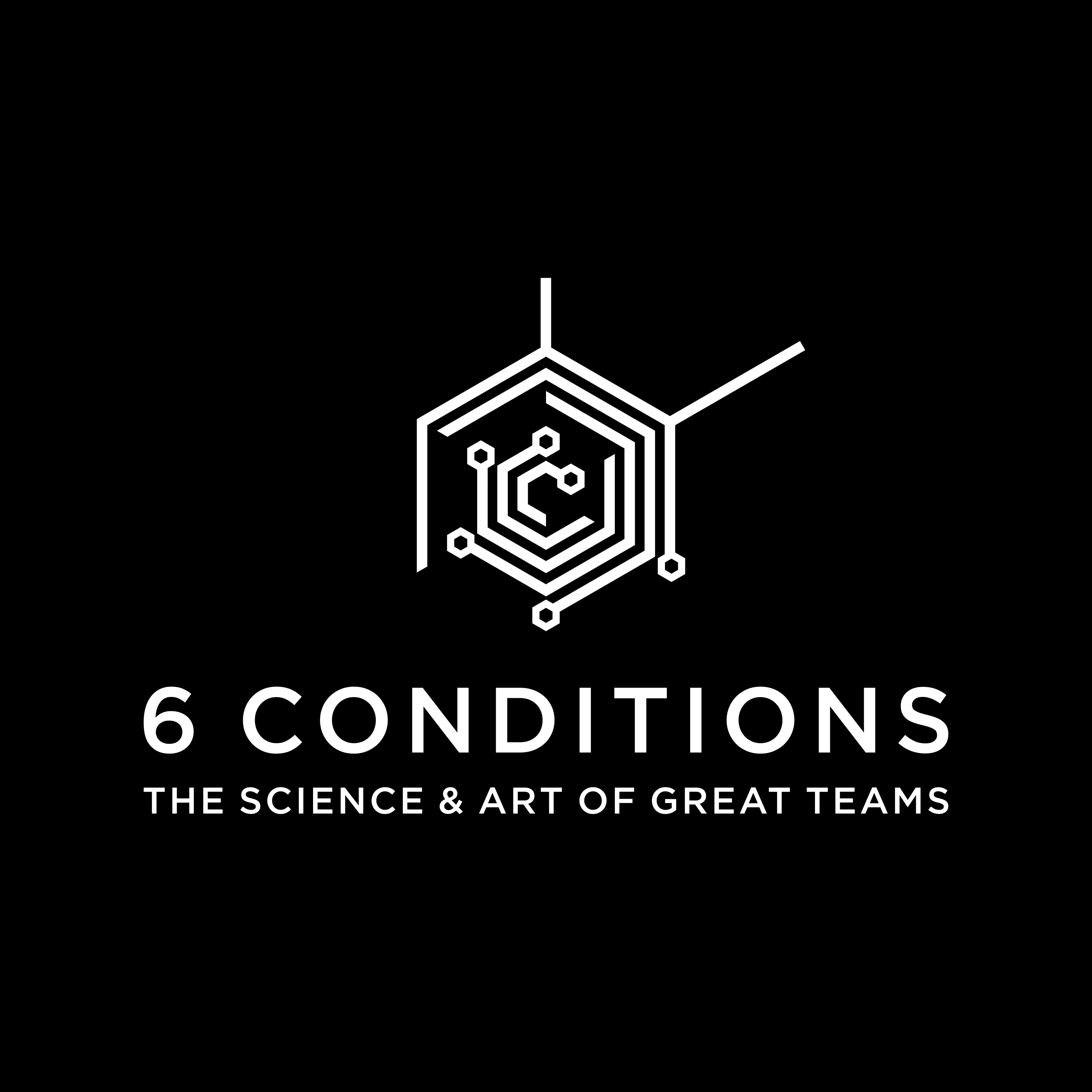
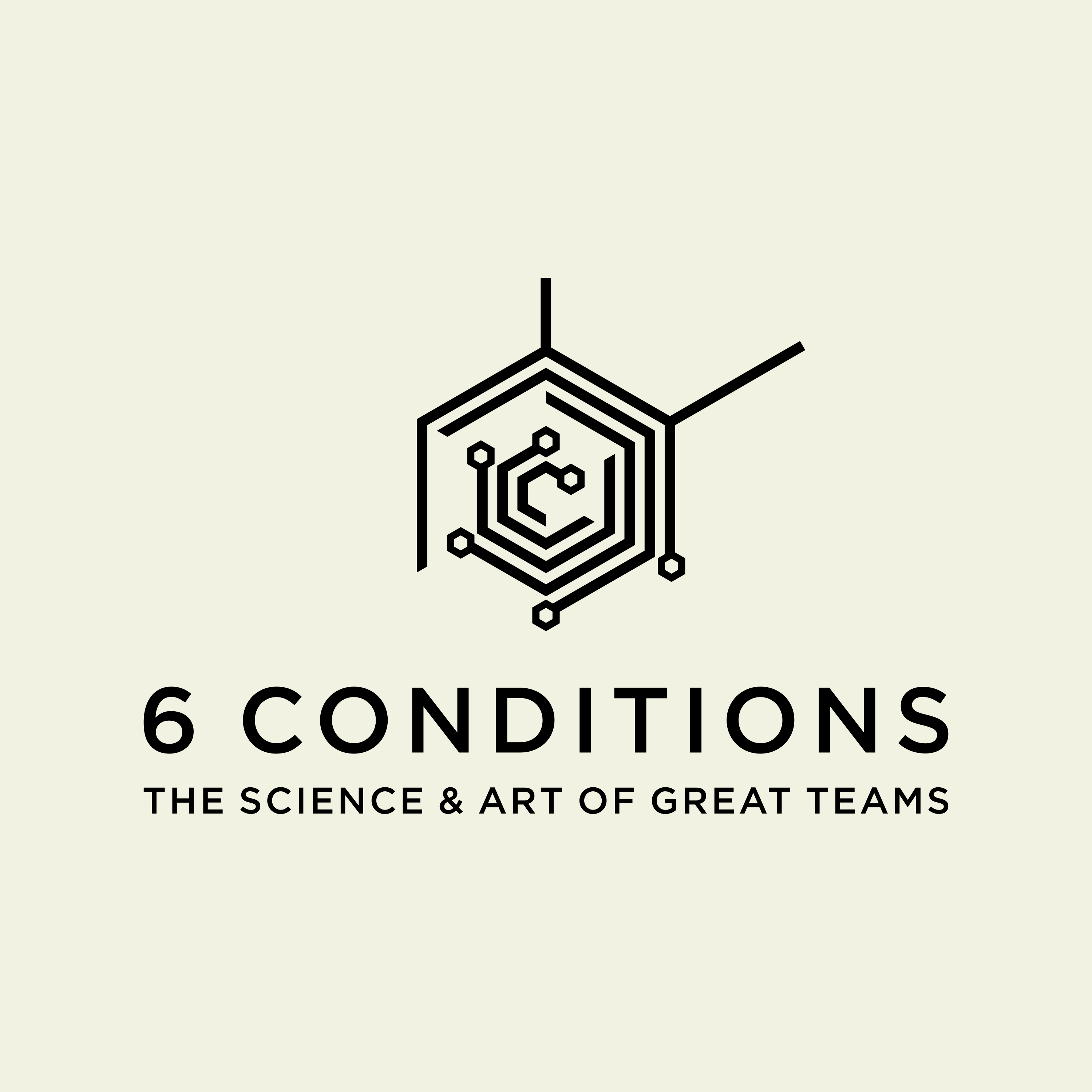
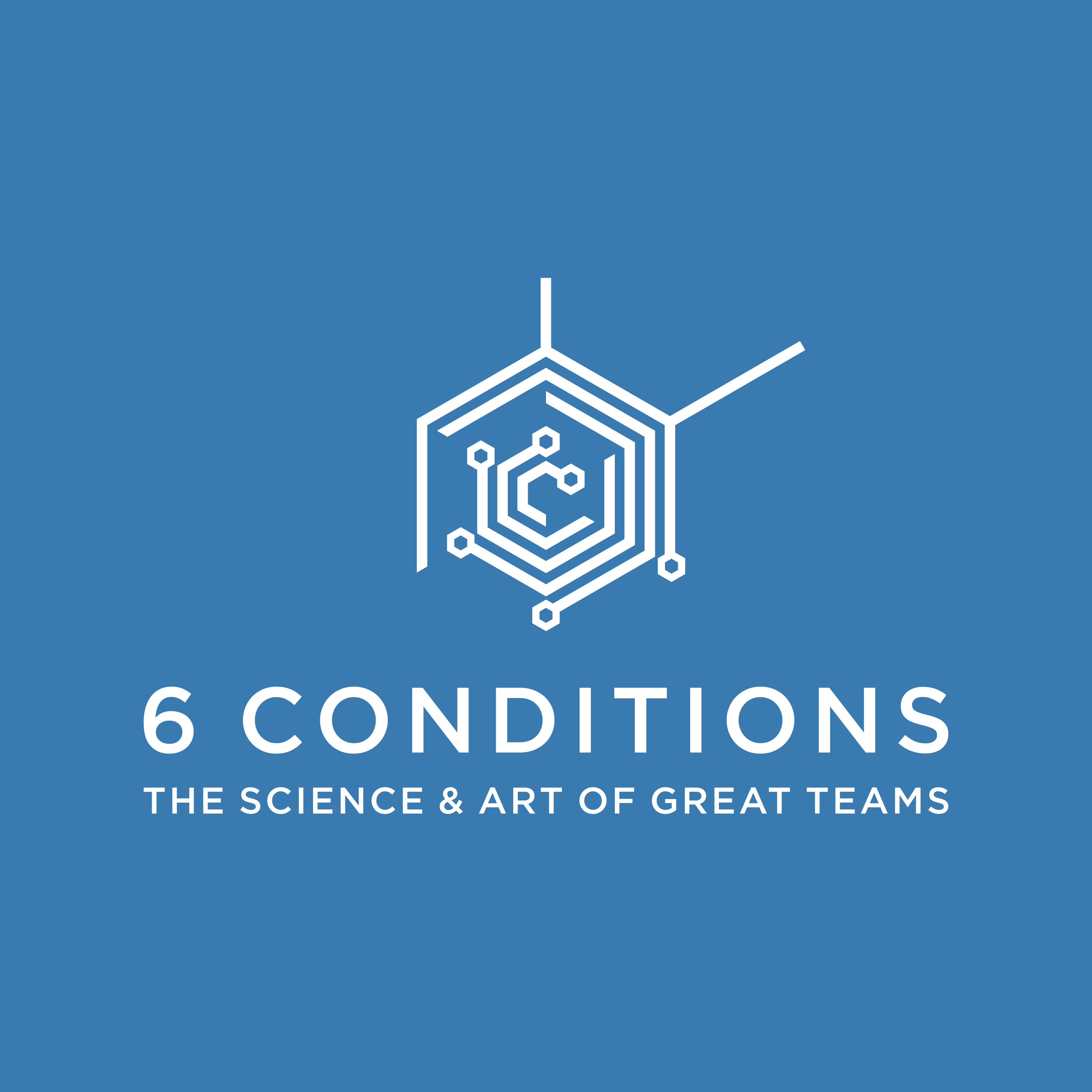


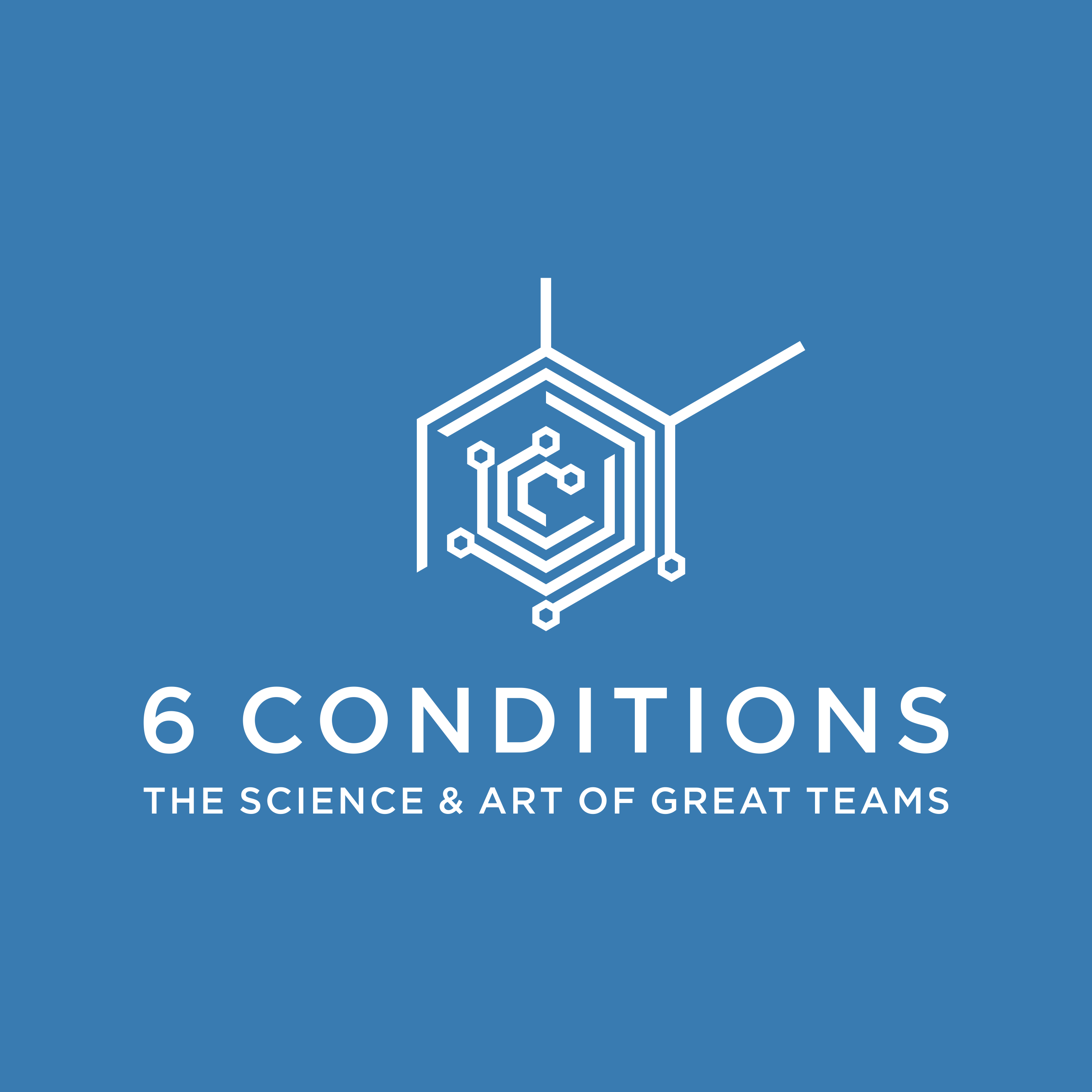
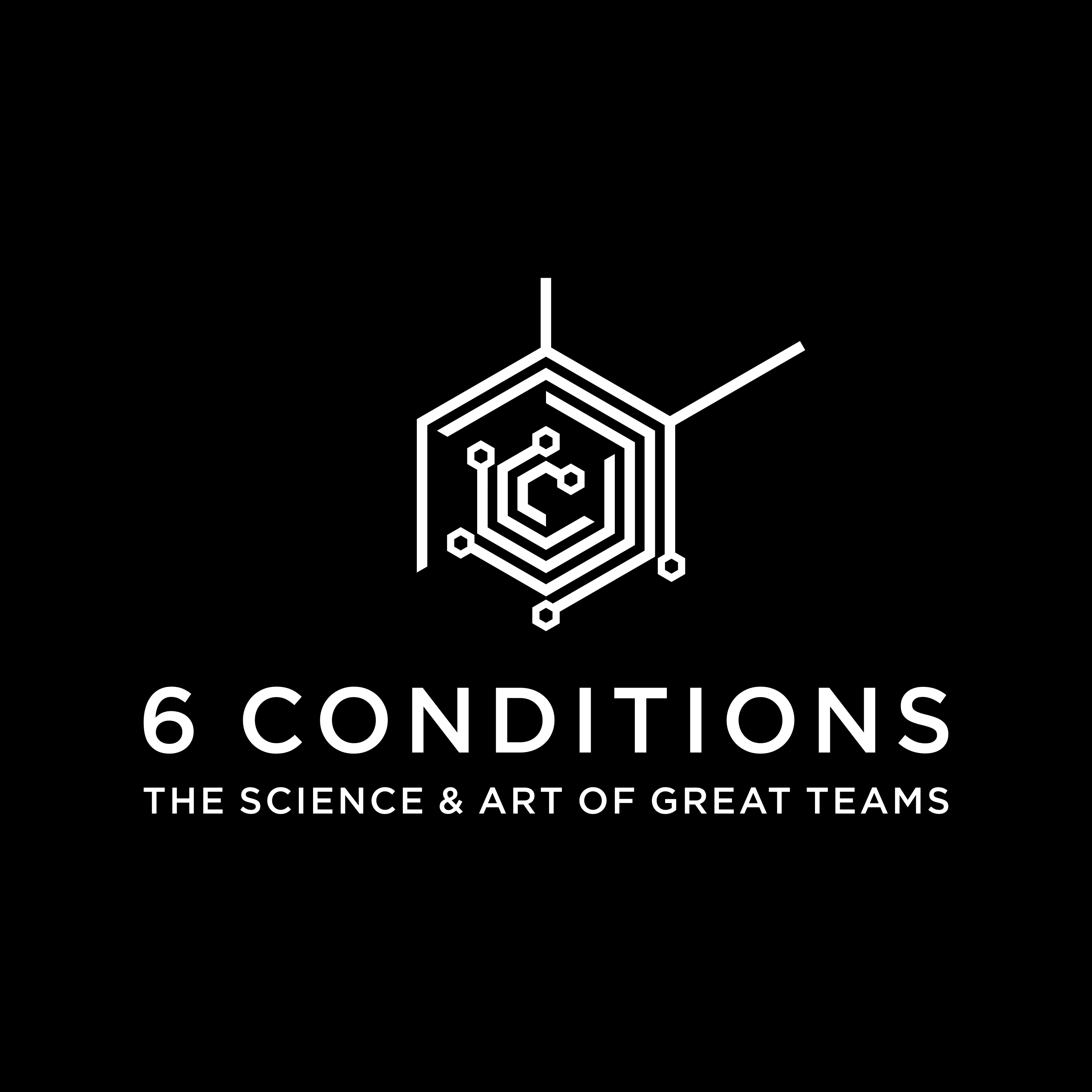



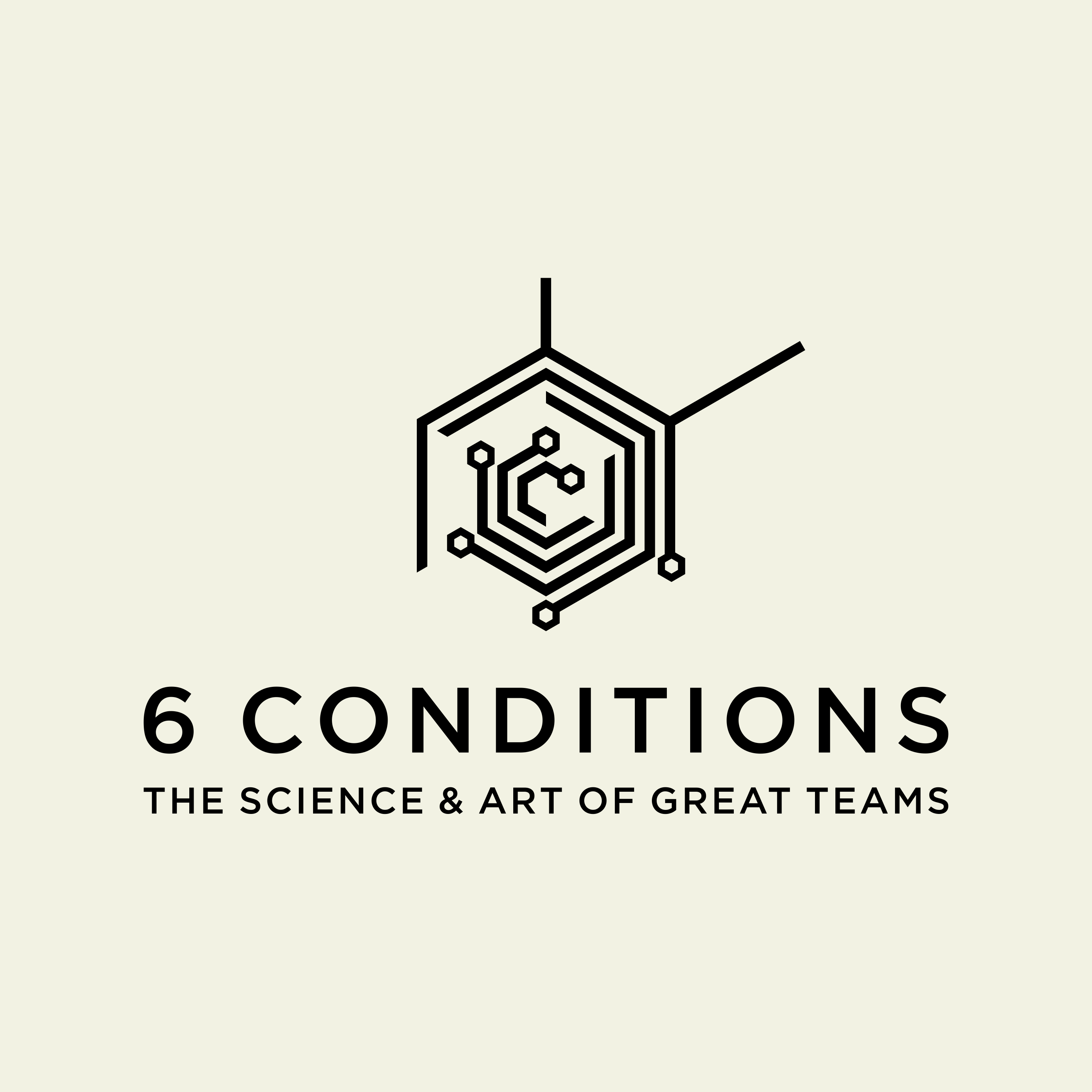



that was a great episode. thank you